I'm about to do something that has become a rather unpopular thing on the internet -- especially among liberal and progressive-minded people such as myself. I'm about to explain why I consider Rey to have been a "Mary Sue" in Star Wars: the Force Awakens.
I'm not doing this because I want to hate on the movies for the sake of hating them. I'm also not trying to hate on Daisy Ridley, and Daisy, if you read this, I want you to know that I think you did a fantastic job with the material that was given to you. I'm being critical because I want the movies to be better than they are. I have very high standards and expectations when it comes to Star Wars, and I feel that Disney's efforts so far have been sub-par. So much so that I often find myself using phrases like ... sigh ... "to the prequels' credit". I hate having to say that. It makes my skin crawl every time. I'm at a point, however, in which I find myself pointing out merits in the prequels as a point of contrast against flaws that I perceive in Disney's Star Wars films, as if one set isn't better or worse than the other; but rather, that they are just ... different.
I don't hate Rey. I am critical because I want these characters to be better.
So even though this is kind of old news that's been beaten to death for over two years, let's talk about Rey for a moment. And regardless of which side of this issue you fall on, I hope that you read the following with an open mind. And if you disagree, then that's fine. I'm not going to fight you over it.
"Mary Sue" is a subjective qualifier
Let's start with some background. The definition that I use for a Mary Sue is:
A fictional character (often appearing in fan fiction) who is primarily a vehicle for wish-fullfillment (usually being a self-insert stand-in for the author), and who is unjustifiably-competent in multiple fields -- if not everything.
Typically, these characters are good at everything they do. They get along with other established characters exceedingly well (sometimes even being romantically pursued by one or more of the canonical characters). They have few (if any) flaws. They are an idealized character who is essentially a "perfect" character within the fiction. They are also -- pretty much by definition -- characters who are added to a fictional setting long after its initial establishment.
The term "Mary Sue" is derived
from Star Trek fan fiction.
The term originated in Star Trek fan fiction, having been coined in 1973 after the publication of a parody story "A Trekkie's Tale" in the fan magazine Menagerie. This particular story (written by Paula Smith) was about a 15-year-old female character named Mary Sue, and it satirized the unrealistic nature of many characters in other fan fiction stories. Lieutenant Sue was the youngest Lieutenant in Starfleet and was an expert in virtually everything she did. She was "the best and the brightest" of Starfleet.
First off, I want to get one thing straight: whether or not a character is a "Mary Sue" is a subjective opinion. Whether or not any individual reader or viewer considers a given character as a "Mary Sue" is going to depend greatly upon where that individual draws the line between "justifiably-competent" and "unjustifiably-competent". That line will vary from person to person, and from fictional universe to fictional universe. I draw that line at a much different place for Star Wars than I do for Star Trek. In addition, this line is not always a hard or clear-cut line. It might be very fuzzy. The fuzziness of the line will also vary from person-to-person and from fictional-universe-to-fictional-universe. It's all on a continuum. Even within a single fictional universe, one character may be " more Mary Sue-ish" than another character.
Identifying a character as a Mary Sue also does not necessarily mean that the work of fiction (or even the character) is inherently bad. [More]
33b6a16d-ced8-4021-861e-c99f868a24d4|0|.0
Tags:Mary Sue, fan fiction, Star Wars, Star Wars: The Force Awakens, Star Wars: The Last Jedi, Disney, Rey, Daisy Ridley, Luke Skywalker, The Empire Strikes Back, Return of the Jedi, the Force, Jedi, Jedi Mind Trick, James Bond, Harry Potter, Sherlock Holmes, Neo, Superman, Doctor Who, James T. Kirk, Star Trek, Wesley Crusher, Gene Roddenberry, canon, women, sexism, gender, equality, gender equality
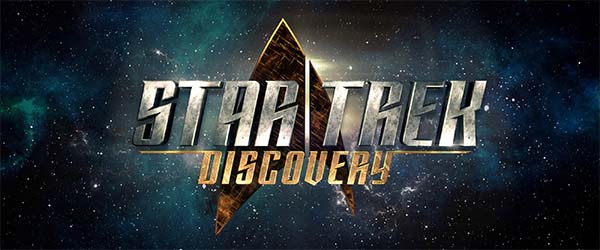
I finally got around to watching the entire first half of the first season of CBS's Star Trek: Discovery series. I'm running behind on this show since I don't have a CBS All Access subscription. I've been deliberately avoiding information about the post-hiatus episodes, so information and opinions in this post may be outdated by the time I get around to publishing it. Maybe later episodes have resolved some of these complaints. If so, feel free to ignore such comments, or let yourself be giddy with the dramatic irony. Oh, and feel free to comment, even if you do so with spoilers. I won't be offended or upset.
Before I go into the details, I want to at least try to dispel the idea that I'm just an angry fanboy who is butt-hurt that the series doesn't strictly adhere to continuity. That's come up when I've talked about this show to people in person. So I'm not going to spend this review talking about how the Klingons look different. I don't care that they look different. I've already addressed that. It does bother me that the Klingons also seem to be culturally dissimilar to the established Klingons, but I won't harp on that either. I'm not going to complain about how the uniforms and badges are anachronistic. I got that out of my system before the show even launched. I'm not going to complain that the tech looks more advanced than Original Series tech. These complaints are mostly pedantic and silly. In fact, the aesthetic look of the show is actually one of its strengths.
The visual style is one of Discovery's strengths, even though almost all of it is anachronistic.
I'm also not going to complain about Burnham being Spock's step sister, nor am I going to assert that Spock having a human step sister that we never knew about breaks canon. Spock was always very closed off about his childhood and family. In the Original Series episode "Journey to Babel", Kirk and McCoy meet Sarek and Amanda without having any idea that they are Spock's parents. Heck, this even happens in the second season, after Spock returns home to fight for his arranged marriage in "Amok Time". McCoy even later delights at the revelation that Spock had a pet "teddy bear" as a child -- even though that "teddy bear" had 9-inch fangs.
Kirk and McCoy didn't even know that Sarek and Amanda were Spock's parents.
Even more infamous is when Star Trek V created a half-brother for Spock out of wholecloth. When trapped in the brig, Kirk even says "I know Sybok isn't your brother because I happen to know for a fact that you don't have a brother!" To which Spock responds "Technically you are correct. I have no brother.... I have a half-brother." I can easily see the same exchange being made in reference to Burnham: "Technically, you are correct. I have no sister.... I have a step-sister."
Kirk confronts Spock in Star Trek V, saying he knows Spock has no brother.
So yeah, I don't really have an issue with Burnham being a step-sister to Spock. I would prefer that the writer have not ret-conned Spock's character [yet again] because I feel like this just serves as an excuse to eventually introduce Spock into the series as a cheap cop-out way of increasing fan interest if the show starts to tank -- just like how Into Darkness had Leonard Nimoy just sitting around. The writers have that ace up their sleeve, and it's only a matter of time before they use it.
Spock plays his usual game of semantics to justify his obscurance of the truth.
Instead, I want to talk about how I feel that the show betrays the series' foundation as hard science fiction, and how it actively avoids the very spirit that made the Original Series and Next Generation so beloved.
... [More]
32e74070-f8fa-444a-b6d4-207d5a08322e|4|3.5
Tags:Star Trek, Star Trek: Discovery, science fiction, CBS, all access, streaming television, Sonequa Martin-Green, Michael Burnham, Gabriel Lorca, Jason Isaacs, Saru, Doug Jones, Sylvia Tilly, Mary Wiseman, Harry Mudd, Rainn Wilson, Sarek, James Frain, Klingon, war, allegory, spore drive, parallel universe, mirror universe, Midichlorian, Star Wars, warp drive
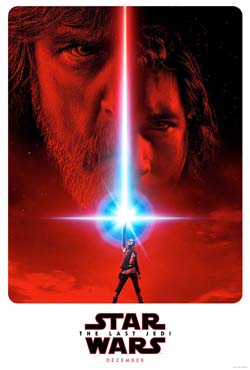
If there was one thing that was going to completely derail this movie for me, it was going to be its tone. The cockpit furby in the trailer was completely off-putting for me, and the actual movie begins with a dumb joke that makes one of the movie's key villains look like a complete dolt. Maybe that's the point, but the joke fell completely flat, pulled me out of the movie, and the movie had to do a lot of work from then on in order to pull me back in.
Fortunately, it eventually did pull me back in and held me throughout. I was totally on-board with the direction Rian Johnson took Luke Skywalker, and the parts of the movie that take place on the island were the definite highlights for me. Tone was still an issue though. There's a lot of attempts at humor that fall flat on their face. About the only jokes that worked for me were Luke tickling Rey's hand with the leaf and Luke chucking the lightsaber over his shoulder (apparently in the same place he chucked his X-Wing and all his other unwanted garbage).
Obviously, this movie takes a lot of its thematic and tone queues from The Empire Strikes Back. It's the middle movie in a trilogy that's [assumedly] not going to end with the main character murdering all the other good guys in cold blood and turning into a bad guy, so it has to be dark and brooding. The juvenile humor (along with the cartoonish action) just completely doesn't work in a movie that takes itself as seriously as this one does.
Those bad jokes and occasional cartoonish action sequences are surrounded by a movie that actually does have a lot of meta-thematic weight to it and tries very hard to push the Star Wars universe in a new and interesting direction. This isn't the fan service vehicle that The Force Awakens and Rogue One were. This is an actual movie with something to actually say about movies and fan communities. It doesn't hit quite as hard as Black Mirror's recent evisceration of fan entitlement via a Star Trek parody, but it comes close. As much as The Force Awakens delighted audiences with its whole-hearted embrace of nostalgia and fan service, The Last Jedi works very hard to actively disappoint fans. As the trailers promise, "this does not end the way you think", and from here on out, it's SPOILER TIME:
The Last Jedi goes out of its way to disappoint, regardless of what fan theory(ies) you subscribed to. [More]
66ac085b-1075-478b-a2d3-1af81be7e711|0|.0
Tags:Star Wars, The Last Jedi, Star Wars: The Last Jedi, Lucasfilm, Disney, Rian Johnson, Rey, Kylo Ren, Supreme Leader Snoke, Leia Organa, Carrie Fischer, Luke Skywalker, Chewbacca, Han Solo, hyperdrive, Black Mirror, toxic fandom
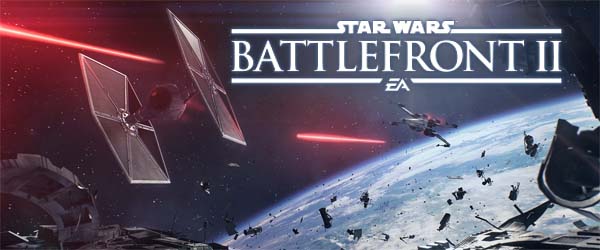
Dang, I was really hoping to get this one out before the end of the year...
Thanks to previews, journalists, and complaints from beta users, this is yet another game that I knew better than to buy on launch day at full retail price. Even before the game came out, beta players and gaming websites were already condemning Battlefront II for its pay-to-win multiplayer system. When the media finally got their hands on preview builds of the full game, they were quick to attack the online progression system. Once the game was released, public outcry forced EA to literally neuter the game's online economy.
Slot machines are legally required to disclose
their paytables -- and sometimes their RTP.
EA started damage control by slashing the prices of heroes so that they supposedly weren't as much of a grind to unlock. However, the sneaky bastards also reduced the rewards for various in-game activities (such as completing the campaign), so as to render the cost reduction virtually moot. Then, EA disabled micro-transactions altogether. So by the time I finally started playing the game (over a month after launch), it was a totally different experience than it was intended to be at launch.
Star Wars license-holder Disney was furious with EA for potentially tarnishing the Star Wars brand (especially with the pending release of The Last Jedi). EA's stock prices fell as a result.
Battlefront II has actually caused law-makers and regulatory agencies in the United States and Europe to consider whether loot boxes qualify as "gambling", and whether they should, therefore, be regulated as such, including banning their sale to minors. Corporations are also starting to hop onto the bandwagon of self-regulation. Apple announced that all iOS apps with randomized micro-transactions must disclose the odds associated with rewards. This is the same disclosure that is actually legally required for actual gambling, such as slot machines.
For the record, I do not object to gambling per se. I actually bet every week on college and NFL football. Don't worry, I live in Nevada; it's legal for me. I spent almost three years working as a game developer for a slot machine manufacturer, and the only reason that I'm not still at that job is because the entire department in which I worked got laid off in the wake of a corporate merger (I'm actually very bitter and opposed to corporate mergers, by the way, but that's a discussion for another time). So I don't have a problem with gambling. I just think that it has a time and a place, and I don't want that time or place to be in my video games that I'm already paying $60 just to play. This is why casinos don't generally charge a cover fee.
I personally feel that Shadow of War and Destiny 2 are much more egregious examples of corporate avarice.
Also, for the record, I think that Battlefront II's micro-transaction controversy is a bit overblown. It's an online multiplayer shooter in which there is no win condition or end state. Whether you want the extra hero characters, and whether you're willing to spend time or money to get them is entirely up to the player's own whim. The game is perfectly playable without those heroes, and you can play through the campaign completely without spending an extra penny. It's a bit sleazy that EA markets the game by advertising these characters, and then locks them behind a grind/pay wall, but fighting games have been hiding unlockable characters behind grind-walls for decades.
Battlefront II isn't even the worst micro-transaction / pay-to-win system to come from EA! EA Sports titles like Madden and FIFA have been getting away with much worse pay-to-win systems (via their respective Ultimate Team modes) for years. Personally, I also think that Shadow of War (review coming very soon) has a much more offensive micro-transaction model because Warner Bros actually tied it into that game's campaign. If you want to finish the story, you either have to sit through the grind, or pay to speed it up. Though all of these pale in comparison to Activision and Bungie locking formerly-accessible end-game content behind the pay-wall of a Destiny 2 expansion pack.
In any case, it's sad that a review of a video game has to turn into a political op-ed, but that's the sad state of things right now.
Controversy and public outrage forced EA to completely disable in-game purchases.
So, if I knew that the game was controversially terrible, why did I bother to play it? ... [More]
ca397aec-963c-441f-946e-73a4ac8e54dd|1|4.0
Tags:Star Wars, Star Wars: Battlefront, Star Wars: Battlefront II, loot box, micro-transaction, multiplayer, shooter, single player, campaign, Galactic Empire, Imperial Raider, Star Wars: X-Wing, Disney, EA, Electronic Arts, DICE, Motive Studios, Criterion Games, gambling, regulation, casino, eBay
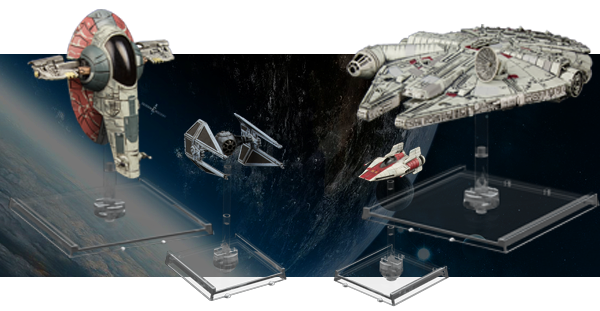
I really enjoy the Star Wars: X-Wing miniatures game, and have been playing it on and off for a few years now. Unfortunately, the core set is very lacking in variety, and so the game really needs to be expanded in order to be fully enjoyed. There's a myriad of expansions available, and they can be pricey. A single fighter ship expansion retails for $15, large ship expansions retail for $30-50, and the huge (epic) ships can cost as much as $90 or $100! If you get into this game, be prepared to spend money.
I never got into much of the Star Wars extended universe, so my interest in expansion ships has been mostly limited to content from the classic trilogy. This allowed me to be at least somewhat frugal in my early expansion purchases, but I still tried to find as much variety as I could. At the time of this review, I own (and have played with) the following expansion: Millennium Falcon, Slave I, Lambda Shuttle, VT-49 Decimator, X-Wing, A-Wing, TIE Fighter, TIE Advance, TIE Interceptor.
I also recently purchased the Corellian Corvette expansion (the foot-long huge ship that stands on two bases), but I've yet to have a chance to play it. I'm also interested in trying out the Imperial Raider, which (as I understand) is a ship that was conceived for the X-Wing miniatures game and then also ported into Armada. I also haven't played the "Most Wanted" expansion, which adds a third faction and could hypothetically allow for three-player games. I don't think that there's an official ruleset for a three-player deathmatch though, so even with a third faction, you'd probably just be playing in teams.
Small ships (fighters)
There's really not much to be said about the small fighter expansions, as they play (mostly) the same as the X-Wings and TIE Fighters that come packaged with the core set. Each ship comes with its own special abilities that add some nuanced differences to how they play, but they still play similarly at fundamental levels.
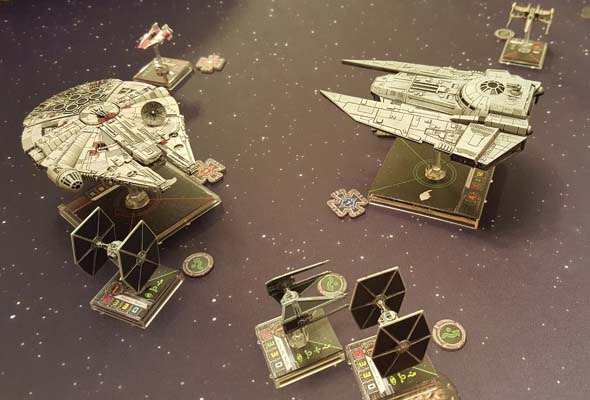
Be very aware of each ship's Pilot Skill, as the risk of collisions dramatically increases with more ships.
The biggest change (and most obvious ones) is that they allow for larger fleet sizes, which complicates the board and requires more careful management of your ships. With more ships in play, you have to be much more aware of what ships are where, what their respective pilot skills are (e.g. their turn order), and what kind of movements and abilities each possesses. Collisions become much more frequent and harder to avoid as more ships are added, and a careless player will probably also find themself running their own ships into each other -- especially if you're trying to fly tightly-packed formations. Of course, I've never run my own ships into each other ...
Perhaps the most obvious expansion is stand-alone X-Wings and TIE Fighters. These are a little bit more than a simple repackaging of the core game's components... [More]
335e38fd-7d74-43a5-be9f-9b9da0b74b65|0|.0
Tags:Star Wars, Star Wars: X-Wing, Fantasy Flight, board game, expansion, miniatures game, dogfighting, Millennium Falcon, Han Solo, Chewbacca, Lando Calrissian, YT-1300, Slave I, Boba Fett, Lambda Shuttle, VT-49 Decimator, X-Wing, Wedge Antilles, A-Wing, TIE Fighter, TIE Advanced, Darth Vader, TIE Interceptor, weapon arc, dice
|

| 12 | | | | | | | 60 | | 11 | | | | | | | 55 | | 10 | | | | | | | 50 | | 09 | | | | | | | 45 | | 08 | | | | | | | 40 | | 07 | | | | | | | 35 | | 06 | | | | | | | 30 | | 05 | | | | | | | 25 | | 04 | | | | | | | 20 | | 03 | | | | | | | 15 | | 02 | | | | | | | 10 | | 01 | | | | | | | 05 |
|